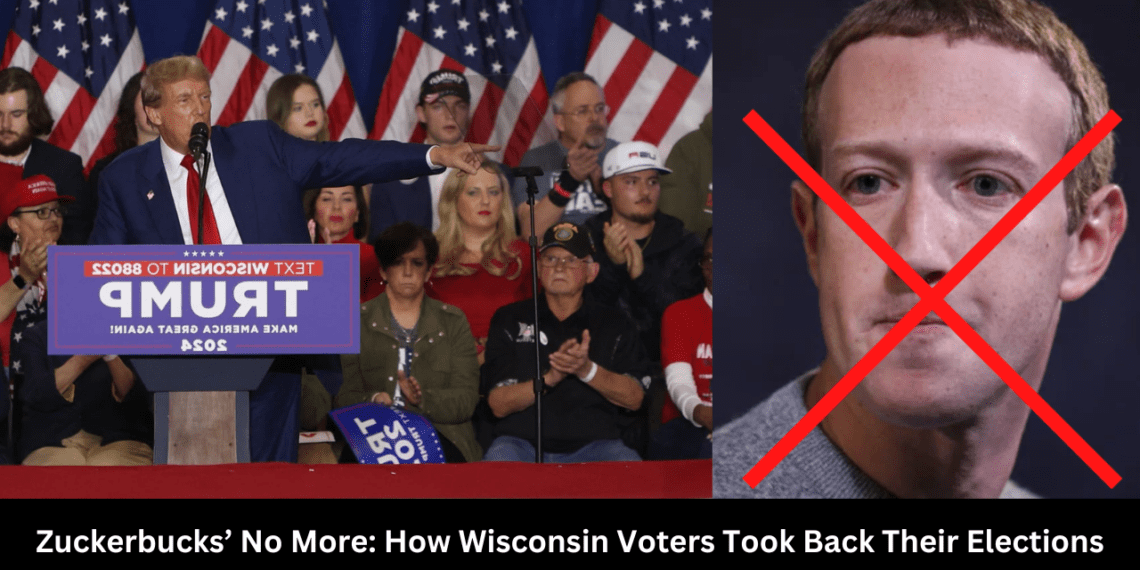In a resolute move that underscores the spirit of American democracy, voters in Wisconsin have emphatically endorsed two constitutional amendments that draw a clear line in the sand against the intrusion of private funds in the electoral process. This decision marks a pivotal moment in the ongoing struggle to preserve the sanctity of the vote, an issue that has sparked widespread concern over the influence of billionaire donors like Meta CEO Mark Zuckerberg, colloquially dubbed “Zuckerbucks,” on the integrity of elections.
The approval of these amendments is not merely a local affair but a resounding message to the nation: Wisconsin insists that its elections are for its voters, not for the highest bidder or out-of-state billionaires looking to tip the scales. This development is a testament to the foresight and diligence of Republican lawmakers who, recognizing the potential for abuse and manipulation, sought to enshrine these protections within the bedrock of the state constitution.
At the heart of this landmark decision is a fundamental question about the role of money in our electoral system and the potential for it to undermine the democratic process. Critics of private election funding, including prominent figures from conservative think tanks such as the Wisconsin Institute for Law and Liberty, argue that the infusion of vast sums of money by entities like the Center for Tech and Civic Life, under the guise of voter access and education, disproportionately benefits Democratic strongholds, thereby skewing the electoral landscape.
This criticism is not unfounded. In 2020, Zuckerberg and his wife Priscilla Chan donated an unprecedented $300 million to the Center for Tech and Civic Life, a contribution that Republicans allege was a calculated attempt to influence the outcome of the election in favor of Democrats. The controversy surrounding this donation, aptly named “Zuckerbucks,” has ignited a nationwide debate on the appropriateness of private funding in election administration, leading at least 27 states to introduce legislation to prohibit or limit such practices.
However, the implications of these amendments extend far beyond the realm of financial contributions. By mandating that only official election authorities can administer elections, Wisconsin is taking a stand against potential external interference, ensuring that the administration of elections remains a sovereign and impartial process, immune to the whims of private interests and consultants.
Despite the clear mandate from the electorate, the path to reform has not been without its detractors. Democrats and some civic organizations have voiced concerns that these measures could complicate the administration of elections, potentially leading to unintended consequences that might hinder the electoral process. Yet, such criticisms fail to recognize the broader principle at stake: the preservation of electoral integrity and the prevention of undue influence.
Authors note: Wisconsin’s bold decision to amend its constitution reflects a growing consensus across the nation on the need to safeguard our electoral system from the encroachment of private interests. By taking a stand against the privatization of elections, Wisconsin voters have reaffirmed their commitment to a democratic process that is transparent, fair, and, above all, accountable to the people.
This watershed moment should serve as a clarion call to other states to follow Wisconsin’s lead in fortifying the foundations of our democracy against the perils of unchecked private funding. In doing so, we can ensure that the future of our electoral process remains in the hands of the electorate, not in the coffers of the elite.









